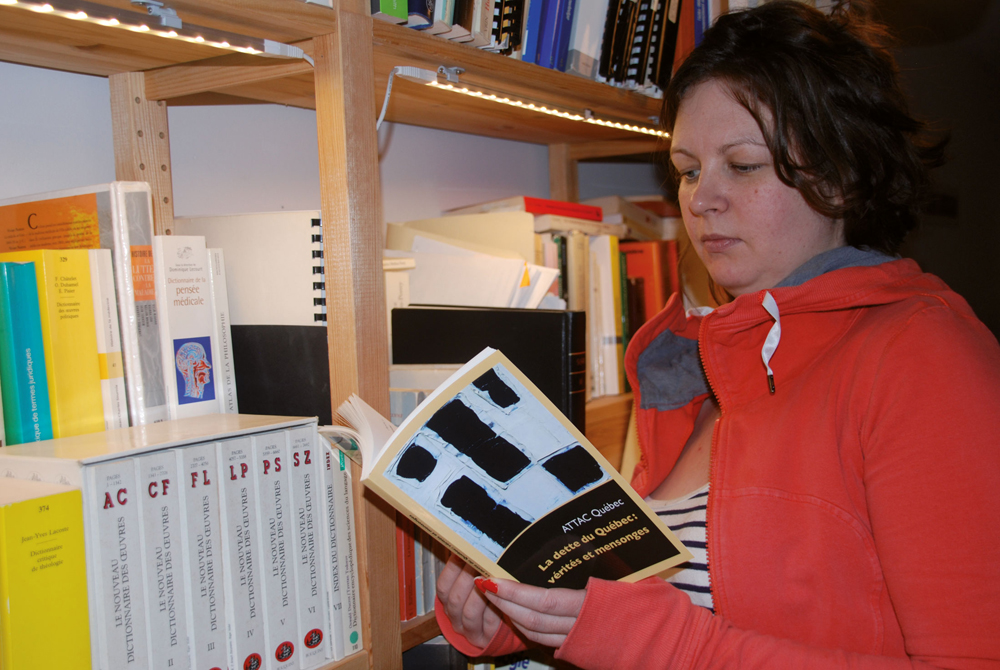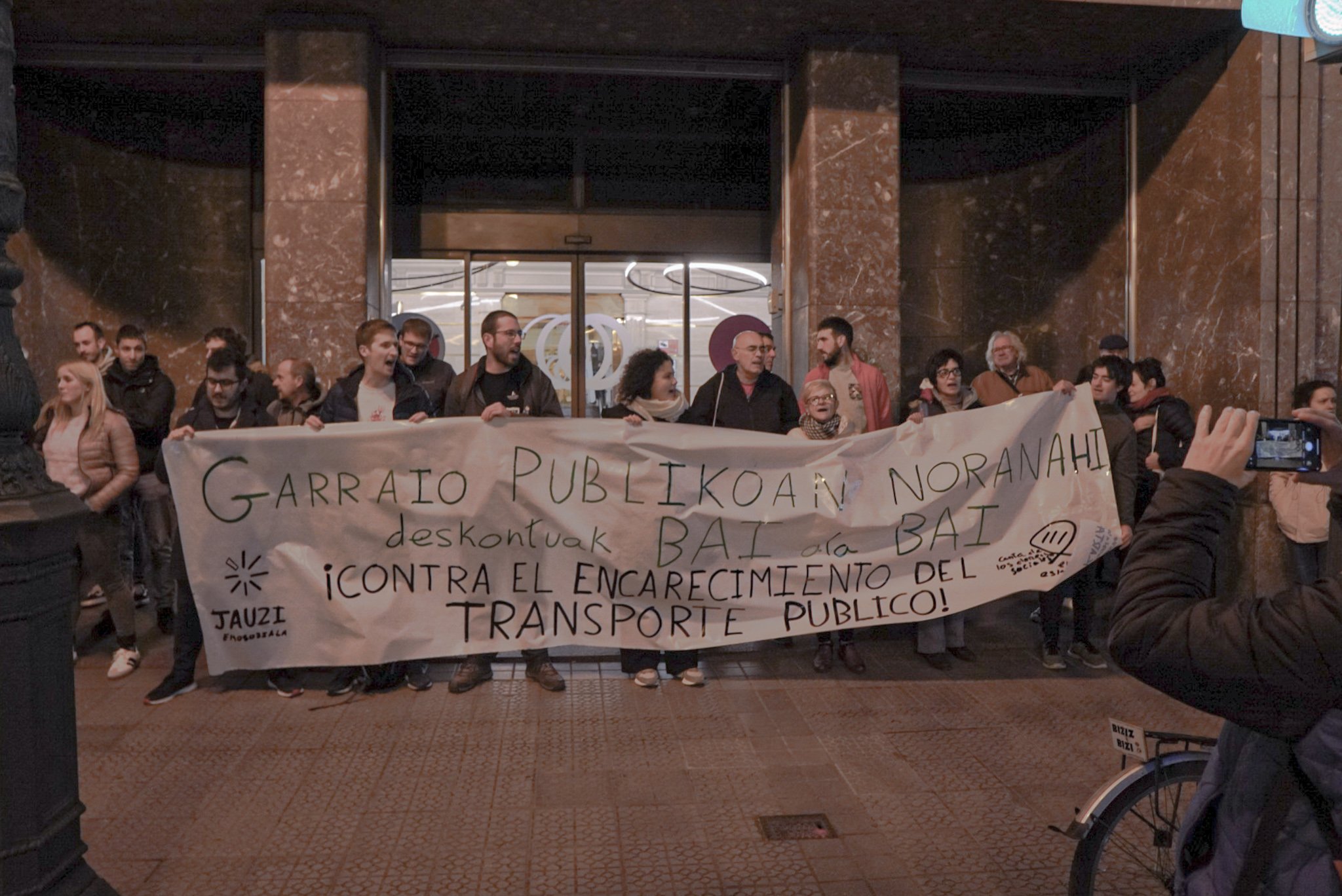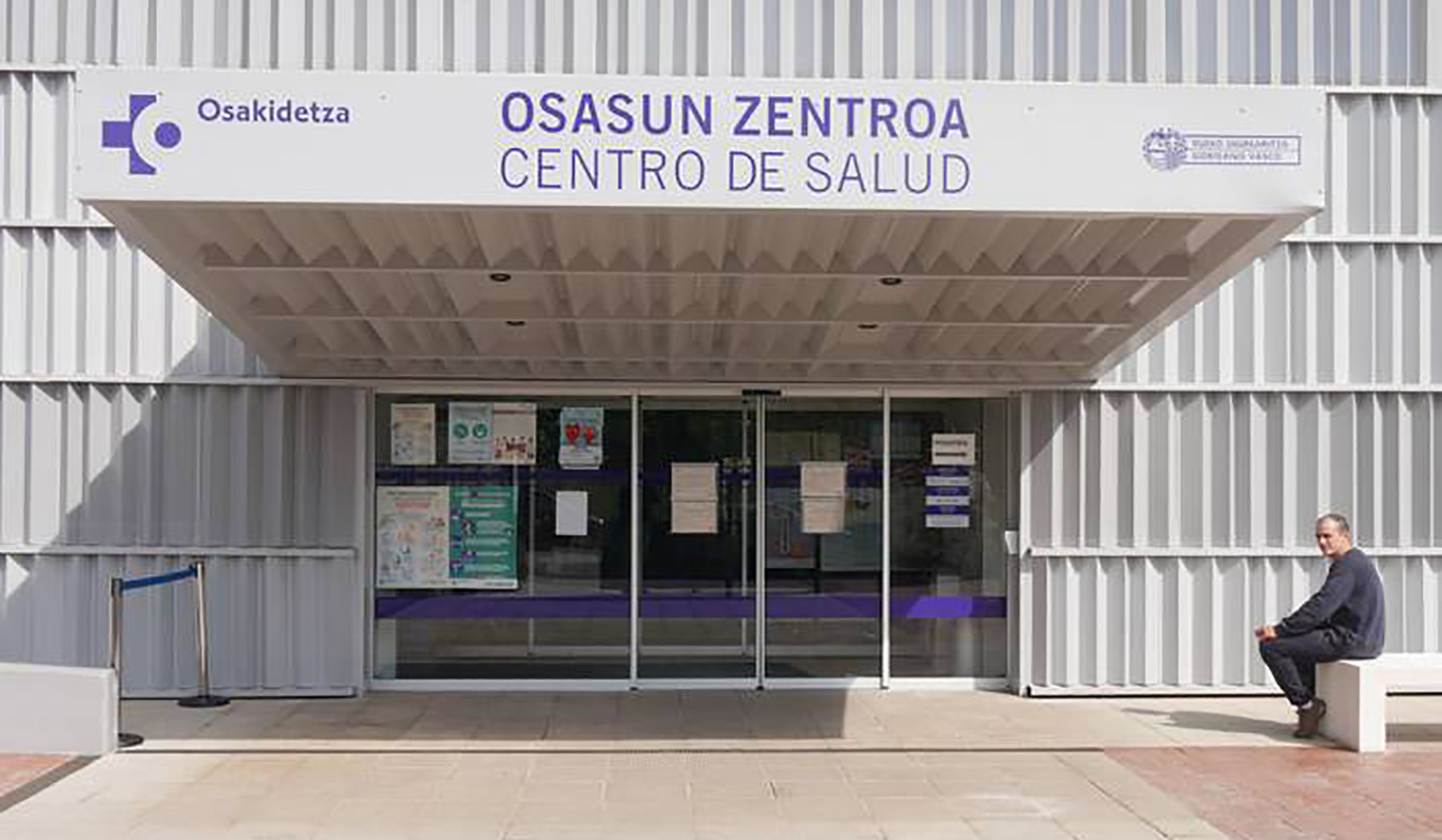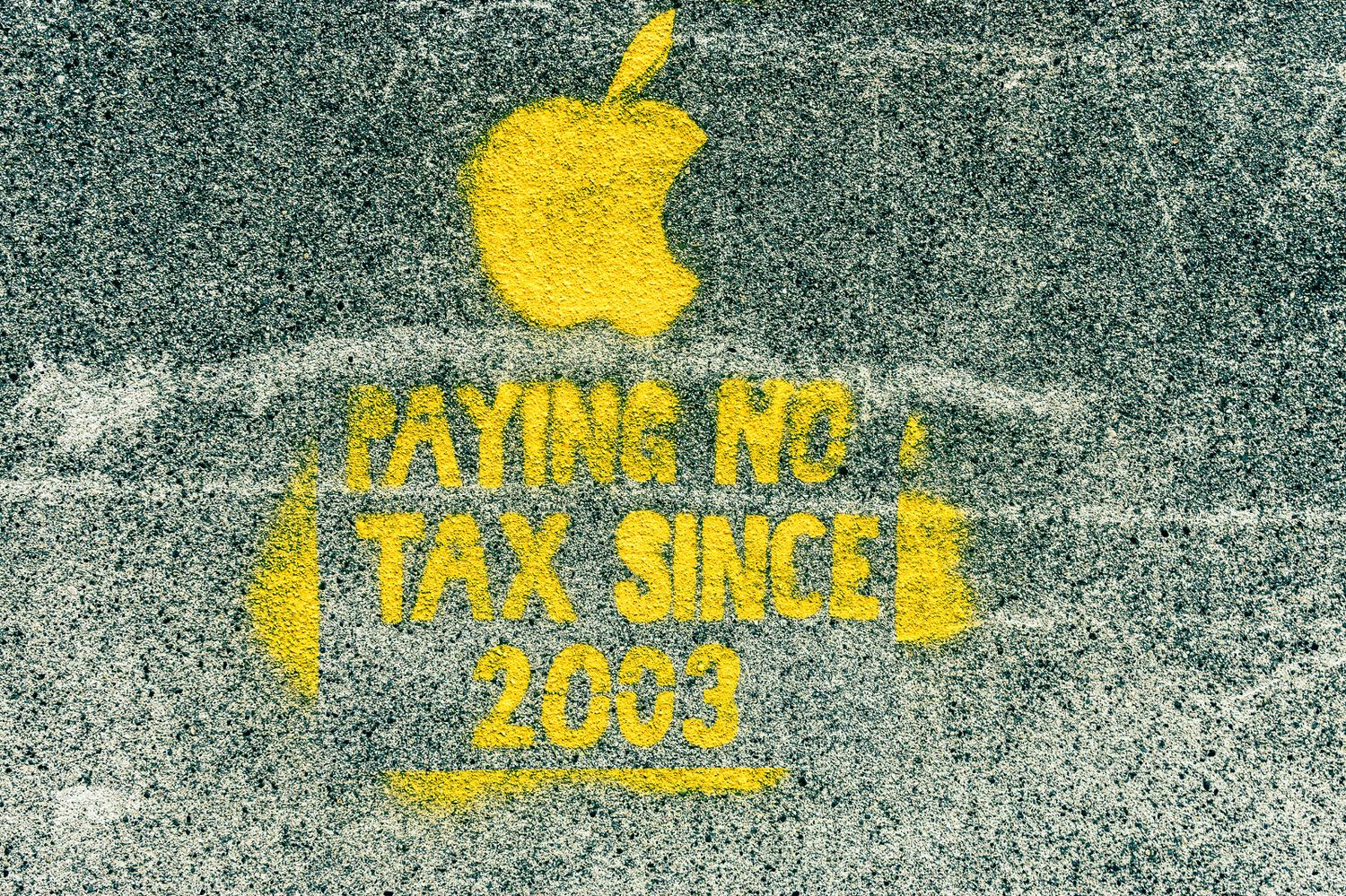"They're not cutting any state, they're unraveling a social state."
- The strength of the financial markets has been growing to reach the power to influence the decisions of public structures and the life of citizens. States are prepared to save their finances under any circumstances. It is indifferent that the debt should increase. “The reform of measures for the salvation of capitalism is immense, perhaps we will never get to know its end,” says Audrey Laurin-Lamoth. Attac has participated in the book La dette du Quebec, Vérités et mensonges (Québec’s debt, truths and lies).

They cite the debt of the State in explaining the need for austerity.
The pretext of debt began to be used in the 1970s, when they began to take on the neoliberal curve. Subcontracting, privatizations, flexibility... Austerity is part of the group of policies that occasionally get a new name. Since the 2008 crisis, we have been increasingly talked about debt, in order to justify ever greater austerity.
We cannot link state debt to public spending alone.
Two elements must be taken into account. On the one hand, they have set aside some revenue: they have avoided the tax and facilitated evasion, they have reduced the tax rates ... There are also subsidies to companies. In Quebec we have really modest tax rates and huge subsidies, for some sectors we are almost a tax haven. On the other hand, we must also look at the waste of revenue. These are political choices that decide on those at the top of the social structure. They are not limited to any state, but they are detrimental to the social state.
Banks received billions.
It was a political choice. To know the existence of systemic banks. It's about a dozen, it's about thirty, but if you land it, the entire financial system would collapse. The financial system is based on trust and, in the event of a breach of trust, many domains fall. They had chosen to avoid it. But no measures were put in place to weaken the power of these banks. Today, the financial market decides on the future of citizenship.
How do you accept that abandonment of power?
The wealth of states is not only linked to industrial development, but also received from the financial market. The return on capital is constantly increasing, while the return on labour remains immobile. There is tacit agreement between the political elites and the financial actors.
Has finance turned capitalism into something more savage?
Industrial capitalism was also dangerous and ecologically unsustainable. Financial capitalism is dangerous because of its versatility. Risk is systemic, we depend on what happens at the other end of the world. Furthermore, we lack the social network that we need to deal with an economic crisis due to neoliberalism.
It can be enriched by bringing the debt to the financial market.
Since the 1990s, Canadian banks have been able to convert their debts into mockery securities tiles.Esta decision stimulated the indebtedness of states and families. It is a problem because it has become a means of profit. It distributes money through loans to promote economic growth. Student loan, car loan, offered by a store... Loans are becoming more and more personalized.
Is it a solution to tax stock exchange transactions?
It should have a solution included in a set of solutions. Reform of the tax system, control of financial activities, reduction of working time as in Scandinavia, fight against tax havens, ecological transition policies... Much remains to be done. But the imposition of transactions will not mean the adoption of new paradigms.
When is the end of capitalism?
I still don't see it. There is an economy that laughs at local solidarity, but we cannot fully escape the financial economy. In 2008, no one thought states were going to give money to banks. The reform of measures for the salvation of capitalism is immense, perhaps we will never get to know its end. However, I do not think we have to wait for a gigantic crisis to imagine what happened to capitalism. Every day, post-capitalism is taking place, reflecting on the ecological transition or the alienation of work. In the 1920s, we found ourselves in a very important situation: great wage differences, increased xenophobia...
It doesn't look good.
We are in an increasingly situation of fascism. The left is unable to convey its message. It has to be said that the media system does not help, because the vast majority of the media are in the hands of private structures. Those who set up in Rome in 1922 to support Mussolin did not know what they wanted. The effect of massification on fascism is terrible, you can be part of a movement without having specific awareness or reflection about what you are doing. In fascism, the ignorant is transformed by political activism and that is terrible. Before Mussolini came to power, there were the elements of fascism, while in the Weimar Republic there was no organized citizen movement, Hitler came to power and put the institutional resources.
“Desberdintasun ekonomiko eta sozialekiko sentibera izan naiz betidanik. Ekonomia kapitalistaren egiturak eta hainbat politika legitimatzeko egin diskurtsoak ulertu nahi nituelako lotu nintzen soziologia ekonomikoari. Arazo ekologiko, ekonomiko zein sozialak ulertzeko finantzaren esfera ulertu behar da”.
Pazienteek Donostiara joan behar dute arreta jasotzeko. Osasun Bidasoa plataforma herritarrak salatu du itxierak “are gehiago hondatuko” duela eskualdeko osasun publikoa.
PPrekin eta EH Bildurekin negoziazioetan porrot egin ondoren etorri da Ahal Dugurekin adostutako akordioa. Indar politiko honek aitortu duenez, maximalismoak atzean utzi eta errealitateari heldu diote, errenta baxueneko herritarren aldeko akordioa lortuta.














.jpg)










